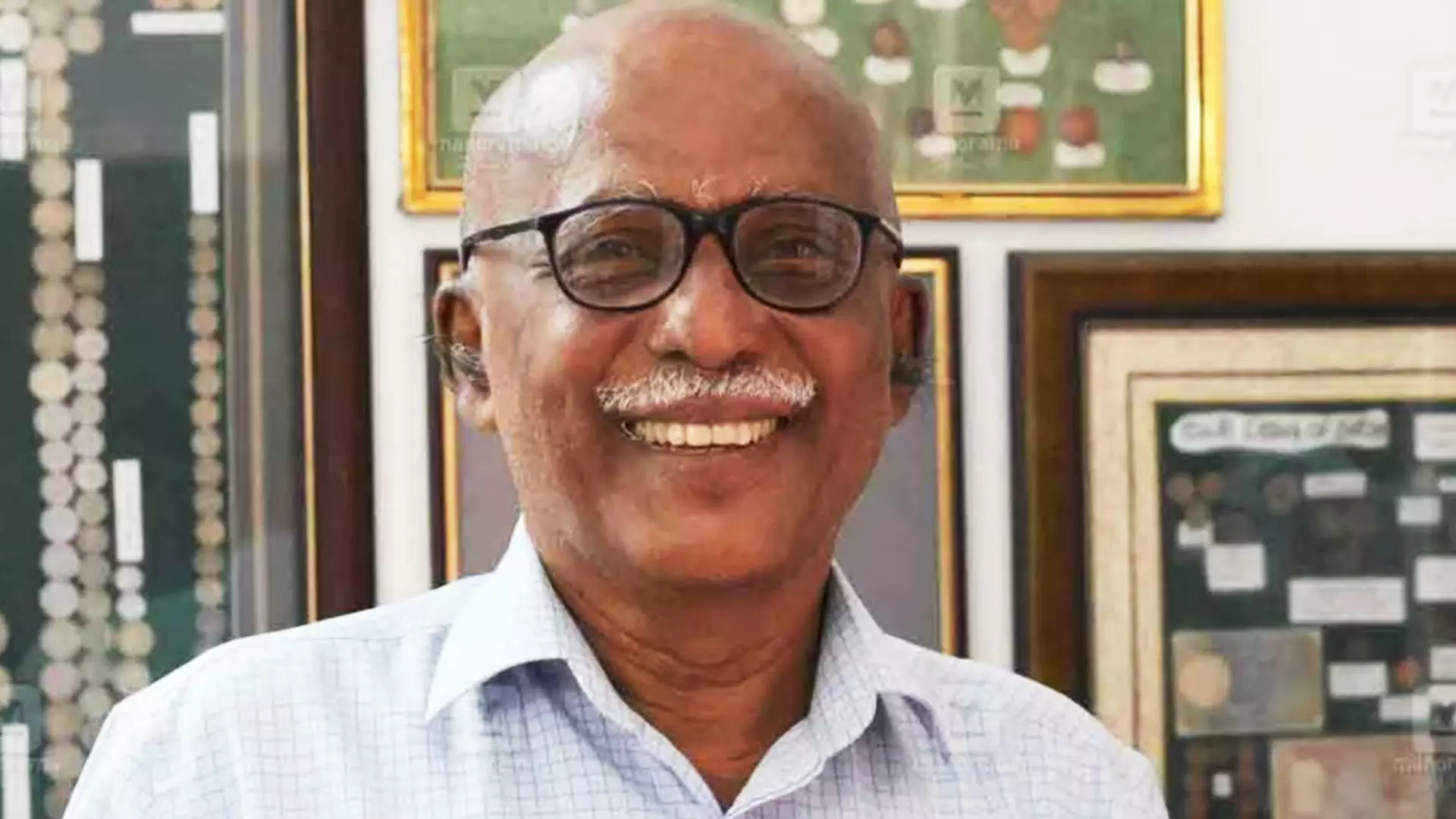
Issac: Controversial history professor who roots for Bharat, not India
Critics say his progression from an ABVP member to a prominent historian begs the question if his scholarship is based on a genuine pursuit of knowledge

CI Issac, a historian who has embraced Sangh Parivar ideology, has courted controversy again in Kerala. After making headlines by suggesting to replace ‘India’ with ‘Bharat’ in textbooks across all classes, as the head of a high-level committee set up by the NCERT to revise the school curriculum, he chose to target a young student leader during a TV debate.
In a prime-time television debate on the proposed revision of NCERT’s textbooks, E Afsal, a central committee member of the Students Federation of India (SFI), was explanng how Sangh Parivar was attempting to influence education by distorting historical facts. This did not strike well with Professor Issac who resorted to using offensive language towards the young student leader. He shouted: “Stop your act there, you rasc**” repeatedly, to the point where the show’s producer had to mute his audio track.
“The TV discussion … serves as compelling evidence of the challenges our education system is currently facing. SFI has been expressing these concerns for years, and this individual has now validated our long-held beliefs. What surprises me is that he is a recipient of the Padma award,” said Afsal.
No stranger to controversies
Issac is no stranger to controversies when it comes to issues related to Hindutva ideology. He was a member of a sub-committee within the Indian Council of Historical Research (ICHR) that authored a report on the Malabar rebellion of 1921. Following this report, 387 Muslims who had taken part in the revolt had their status as freedom fighters revoked.
According to him, the individuals involved in acts of rape, murder and burglary during the rebellion should not be categorized as freedom fighters. This viewpoint aligns with the narrative propagated by the RSS and Sangh Parivar against the Malabar revolt.
This recommendation, which was met with rightful controversy, reveals the extent to which political ideologies can skew historical interpretations. Rather than conducting a dispassionate historical analysis, Issac’s involvement in this committee was widely criticised as motivated by a political desire to downplay certain aspects of the freedom struggle.
While it is acceptable and even commendable for historians to challenge established narratives, their research should be characterized by intellectual rigour, balance and a willingness to engage with diverse viewpoints. Instead, Issac’s reinterpretations of these events seem driven by an ideological agenda that seeks to rewrite history according to the right-wing’s version of the past.
UPA’s blessings
Issac’s close association with the Sangh Parivar organizations and the ultra-nationalist Hindutva ideology is a known fact. He has admitted he was attracted to the RSS at age 18 and joined the outfit at age 19. He kept close association with the Sangh Parivar throughout his career, and was the vice chair of the Bharatiya Vichara Kendram, an RSS-backed NGO. Interestingly it was the Manmohan Singh-led UPA government that inducted him into the ICHR.
“Indeed, Issac and KK Mohamed, former regional director of the ASI, received a significant boost in their career from noted historian Dr. MGS Narayanan following his rift with Prof Irfan Habib in the late 1980s. Dr. Narayanan played a crucial role in establishing their credibility within the academic community,” said Dr. Abhilash Malayil, a noted young historian and an assistant professor with the Sree Shankaracharya University of Sanskrit, Kalady.
“Issac’s opposition to the claim that St. Thomas reached Kerala and converted Namboodiri Brahmins was a significant factor in shaping his conservative ideological stance. He belonged to a group of individuals who argued that apostolic Christianity had no historical basis, a viewpoint that harmonized with the historical narrative of India promoted by the Sangh Parivar. We can brush off his stance as anti-intellectual, it is, in fact, firmly grounded in some rigorous methodology, making it difficult to refute. This is why I believe the Sangh Parivar values his contributions,” added Malayil.
Issac’s take on the 2002 Gujarat pogrom, where he viewed it as “regrettable but inevitable due to the innate human instinct for revenge”, too didn’t sit well with liberal critics and secular politicians.
In a 2004 Organiser article, Issac had infamously tried to put forward a conspiracy theory by creating an imaginary Kerala where “a conspiracy is going on to force the younger generation of Hindus to become beef-eaters” by minorities, an attempt “in the name of friendship”.
Critic of Issac
Social scientist and cultural commentator Dr. TT Sreekumar, in his critic of these articles, termed him an “ideologue of an emerging Hindutva politics which wants to weaken the cause of unification of other backward castes and communities (OBCs) and Dalits in Kerala to serve the interests of caste Hindus and rich Christians”.
Moreover, Issac’s journey from a Christian student joining the ABVP, an RSS-affiliated student group, to his current position as a historian, underscores the extent of his ideological transformation. While personal evolution is not inherently problematic, it raises concerns about the consistency and authenticity of his historical work. According to his critics, his progression from being an ABVP member in the 1970s to a prominent right-wing historian today begs the question of whether his scholarship is based on a genuine pursuit of knowledge or is a mere reflection of his ideological allegiance.

